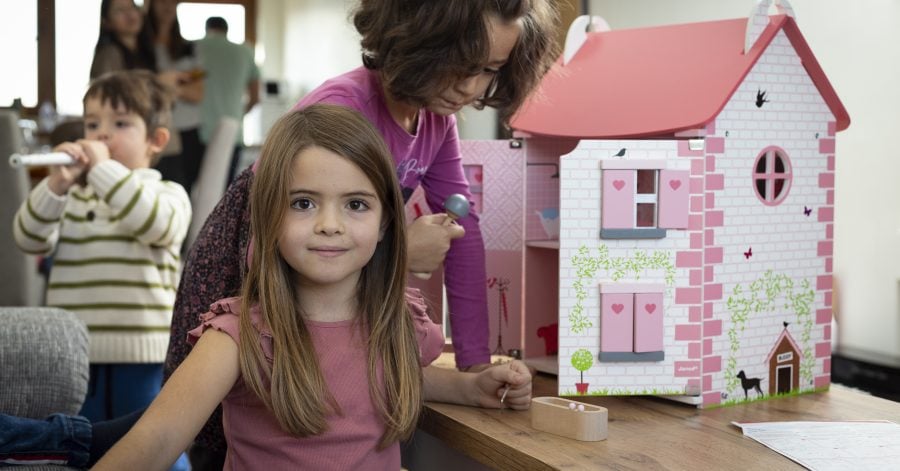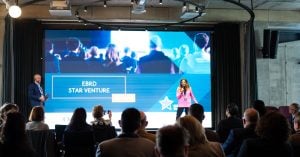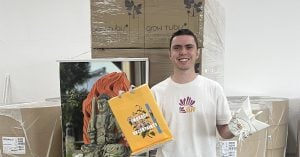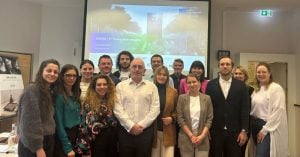One of the best parts of the circular economy is that it presents countless opportunities for application in different sectors of our lives. For parents, one application that is gaining popularity and traction in the SEE region is toys-as-a-service, or toys rental platforms.
Based in Bulgaria, Infinity Toy Box is one such digital platform. After winning a 20K euros award at the ClimAccelerator Black Sea competition in the summer, and a grant from Postbank, to which they added their own money, the first customers are starting to arrive.
“We got inspired by the personal challenges we were having with toys and then did some research that showed us this problem is very universal for families around the world,” Boryana Levterova, co-founder of Infinity Toy Box shares with The Recursive.
In Romania, the model is mirrored by Evertoys, launched in 2016. Evertoys already has crowdfunding platform Seedblink, VC fund Sparking Capital, and VG Partners angel investors on their side. After raising their latest round in 2019, the business was evaluated at 1.5 million euros.
Drawing on interviews with the founders of both startups, The Recursive explores how the toys-a-service model works, how it can benefit families, while also presenting a more sustainable alternative to purchasing toys, and what has been the market’s response thus far.
A peek at the toys rental business model
“Infinity Toy Box’s mission is to make renting as easy as buying,” Boryana says. The company purchases the toys (as well as books, games etc.) from manufacturers or distributors, stores them and rents them to individual consumers. The model is subscription-based, with three different plans, giving access to products of a certain cumulative value. It could be 1-2 big and expensive toys, or 10 smaller ones. Then each plan includes one free delivery and return per month. Customers can also sell their unused toys to the company for credits on the platform.
The company saw the opportunity in this emerging niche to differentiate with a scalable model. They are building it as a franchise, centralizing the technology, marketing, and sourcing, and leaving franchisees to take care of operations and customer support.
Evertoys works in a similar way, as co-founder Tiberiu Lupu explains in a previous interview. Parents can choose a basic monthly plan including two toys from a certain price range and a book. On top of it, there are options for additional toys, or more expensive ones. To sustain the model, all toys are selected on two key criteria: educational potential and durability.
The win-win of renting toys: for parents and the planet
According to Boryana, toy pollution is a large aspect of global pollution; the toy industry uses up to 40 tons of plastic for every $1M revenue (and it is almost a $100B industry). Most of the toys are non-recyclable due to their composition, and “almost a third of parents admit to having thrown out toys in perfect working condition”. Yet, there is not much awareness around these issues
“I believe the role of entrepreneurs is to analyze the habits and needs of consumers and businesses, and to create ways in which to satisfy them that are more eco-friendly. But these ways must be as easy and convenient as the old ways, or else not a considerable amount of people would switch,” she explains.
Renting from the platform versus purchasing can help declutter the home space from unwanted toys, as well as save time in making the trips to the stores, assembling (with Infinity Toy Box, toys are already assembled before delivery) and, later, selling or giving them away.
It also removes the risk of purchasing a toy that the children won’t like. Instead, parents can test a variety of different toys, books, and games, for different goals, from entertainment to integrating play in the learning process, Boryana mentions.
Models like Evertoys are also friendly on the budget. With subscription plans, parents can end up making important savings. The value of an Evertoys box in retail is 4 to 5 times higher than the value of a subscription plan.
Customers are taking interest
Around the world, consumers are becoming more aware about the impact of their consumption patterns and decisions on the environment. As we’ve seen in a previous analysis, the sharing economy is one of the trends underlying the search for sustainability in 2022.
Evertoys noticed this interest with customers early on, even if they haven’t communicated the environmental benefits of the model. But parents showed they care about saving both plastic, and time spent shopping for toys. Clients stick around for 9 months on average, but some clients remained loyal to the services since its launch.
Then the pandemic hit, and an unexpected thing happened. During the toughest period – the first 3-4 months of the lockdown, they grew to a similar level as in 7-8 months of the previous year. With children staying at home, the platform offered a solution for parents looking for toys for play and learning, without spending too much money.
Boryana from Infinity Toy Box adds: “We were already experiencing the frustrations of toy overconsumption but during the pandemic these difficulties intensified. We are now in a similar situation where a lot of our clients don’t go out of home, and we deliver to their doorstep. We learned the importance of hygiene and disinfection and developed a strict protocol of how to ensure maximum safety.”
She tells us analyzing the data from their first customers is already leading them toward decisions they haven’t considered at the start, such as a section with books on parenting. Creating logistics hubs in physical locations that parents frequent, such as children’s sports academies and cafes, is in the plans for the very near future. So is “integrating the developmental aspect of play more” when building the portfolio, such as toys that can have a calming effect on babies and facilitate sleep time.
The company is planning to fundraise in the next few months, to develop the platform and double down on marketing in order to build a successful franchise model.








